New Scientist covers the latest developments in science and technology that will impact your world. New Scientist employs and commissions the best writers in their fields from all over the world. Our editorial team provide cutting-edge news, award-winning features and reports, written in concise and clear language that puts discoveries and advances in the context of everyday life today and in the future.
Elsewhere on New Scientist
Time for a clean-up • We must stop “forever chemicals” becoming a forever problem
New Scientist
Flying dinosaur alights in Chicago
Lack of US bird flu tracking in cows may raise risk of human infection
Schrödinger’s cat could help cut quantum errors
Geysers may have created protocells • Simulations show cycles of pressure could generate cell-like structures and even simple proteins
China launches Chang’e 6 to the moon’s far side
Privacy concerns over brain monitors • There could be data sharing problems with many firms that sell consumer neurotechnology devices
Climbing wall users might be breathing in toxic rubber dust
Red squirrels were hosts for leprosy in medieval England
Black holes lose status as top information scramblers
How anger may raise heart attack risk • Being angry for just 8 minutes causes a change to blood vessels that is linked with heart attacks
Rising temperatures are a threat to bumblebee nests
Strange signals may come from dead star with a planet
GPS jamming traced to Russia after European flights suspended
Is climate change accelerating? • The record-breaking heat of 2023 has prompted disagreement among climate scientists, with some saying it shows Earth may have entered a new period of warming, finds Madeleine Cuff
Even hotter summers
Boundary between water and air is three molecules thick
Flies make epic migrations that may be vital for pollination
Social media ads buy votes for €4 • Political adverts may swing elections cheaply, finds an analysis of German election results
Bump on praying mantis chest is an odd type of tongue
Measles immunity seems to wane • A modelling study suggests that the level of protection against measles provided by the MMR vaccine falls by a small amount every year, but remains high overall, finds Clare Wilson
‘Wall of death’ may help fitness on moon
Do dads’ microbes affect infant health?
Orangutan uses medicinal plant to treat facial wound
Really brief
Our mark on the planet • Criticisms of the proposed Anthropocene epoch miss the point. Humanity’s impact on Earth is real, whether formalised or not, says Jan Zalasiewicz
No planet B • The real cost of flying I always add the carbon offset option when buying a flight, but I had a sneaking suspicion I was being greenwashed. Turns out I was right, says Graham Lawton
Ancient gaze
Your letters
Of eggs and evolution • From large and shell-covered to tiny and jelly-like, the developmental story of eggs offers a way to rethink the story of life, discovers Tom Leslie
They’re out there… • For the best chance of finding alien life, we must tap into all human diversity, writes the scientist leading the hunt. Abigail Beall explores
New Scientist recommends
The sci-fi column • Looking up Thomas Hart lives in 1990s small-town Essex, writing novels and local newspaper columns. Comet Hale-Bopp’s approach is big news – and transformative for Hart – as we learn in the moving story Enlightenment, says Emily Wilson
They came by sea… • It is one of the greatest mysteries of ancient history: who were the Sea Peoples blamed for the destruction of a string of civilisations 3000 years ago? Colin Barras...
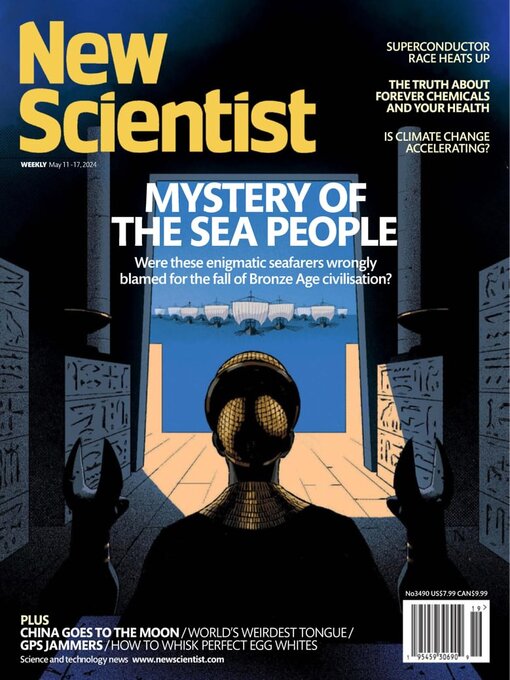
 Jun 22 2024
Jun 22 2024
 Jun 15 2024
Jun 15 2024
 Jun 08 2024
Jun 08 2024
 Jun 01 2024
Jun 01 2024
 May 25 2024
May 25 2024
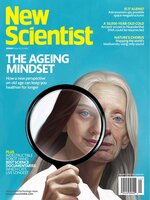 May 18 2024
May 18 2024
 May 11 2024
May 11 2024
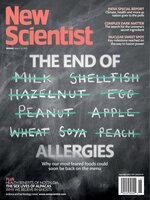 May 04 2024
May 04 2024
 Apr 27 2024
Apr 27 2024
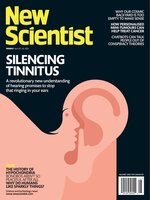 Apr 20 2024
Apr 20 2024
 Apr 13 2024
Apr 13 2024
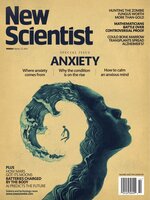 Apr 06 2024
Apr 06 2024
 Mar 30 2024
Mar 30 2024
 Mar 23 2024
Mar 23 2024
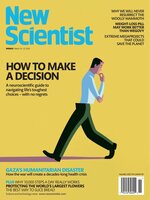 Mar 16 2024
Mar 16 2024
 Mar 09 2024
Mar 09 2024
 Mar 02 2024
Mar 02 2024
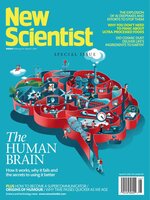 Feb 24 2024
Feb 24 2024
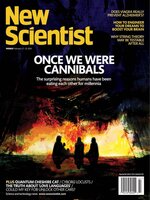 Feb 17 2024
Feb 17 2024
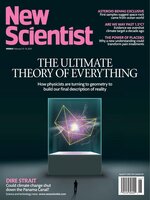 10 Feburary 2024
10 Feburary 2024
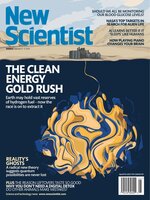 Feb 03 2024
Feb 03 2024
 Jan 27 2024
Jan 27 2024
 Jan 20 2024
Jan 20 2024
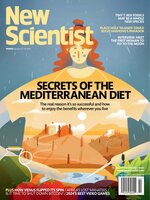 Jan 13 2024
Jan 13 2024
